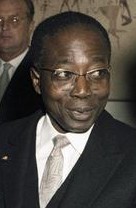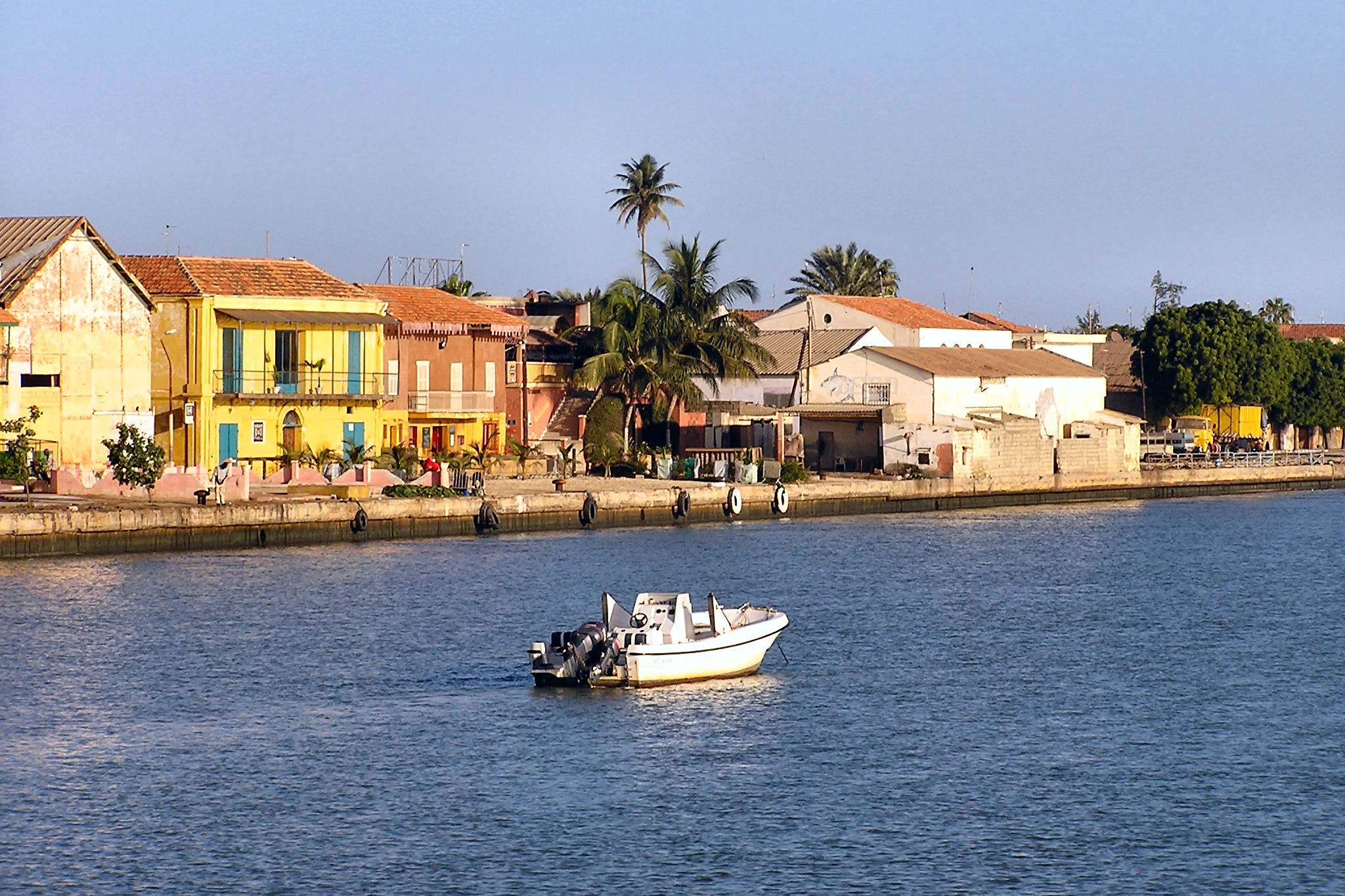|
List Of Presidents Of Senegal
The president of Senegal () is the head of state of Senegal. In accordance with the 2001 Senegalese constitutional referendum, constitutional reform of 2001 and since a 2016 Senegalese constitutional referendum, referendum that took place on 20 March 2016, the president is elected for a 5-year term, with a limit of two consecutive terms. The following is a list of presidents of Senegal, since the country gained independence from France in 1960. Election process Inauguration The Senegalese Constitution provides the following oath for the president which must be taken before they enter into office: Term Term duration In 1991, presidential term lengths were extended from five to seven years. In January 2001, during Abdoulaye Wade's first term, a 2001 Senegalese constitutional referendum, constitutional referendum reduced the presidential term back to five years. In July 2008, during Wade's second term, the National Assembly (Senegal), National Assembly approved a constitutio ... [...More Info...] [...Related Items...] OR: [Wikipedia] [Google] [Baidu] |
Coat Of Arms Of Senegal
The coat of arms of Senegal is the Coat of arms, heraldic device consisting of a Escutcheon (heraldry), shield Charge (heraldry), charged with a Lion (heraldry), lion on the left half and a Adansonia, baobab tree on the right, flanked by Palm branch (symbol), palm branches and topped with a Five-pointed star, five-pointed green star at the top. Adopted five years after Senegal gained independence, it has been the coat of arms of the Republic of Senegal since 1965. Both symbols on the shield had featured previously on earlier Senegalese emblems. History Senegal gained independence on 20 August 1960, when it separated from the Mali Federation and became an independent country on its own. It took approximately five years to before Senegal adopted its own coat of arms. It was designed by Suzanne Gauthier, a French Heraldry, heraldist from Paris, in 1965. It incorporated the Lion (heraldry), lion and the Adansonia, baobab tree - both symbols were previously utilised on earlier Sen ... [...More Info...] [...Related Items...] OR: [Wikipedia] [Google] [Baidu] |
Saint-Louis, Senegal
Saint-Louis () or Saint Louis (), is the capital of Senegal's Saint-Louis Region. Located in the northwest of Senegal, near the mouth of the Senegal River, and north of Senegal's capital city Dakar. It had a population of 254,171 in 2023. Saint-Louis was the capital of the French colony of Senegal from 1673 until 1902 and French West Africa from 1895 until 1902, when the capital was moved to Dakar. From 1920 to 1957, it also served as the capital of the neighboring colony of Mauritania. The town was an important economic center during the period of French West Africa, but it is less important now. Nonetheless, it still has important industries, including tourism, a commercial center, sugar production, and fishing. The tourism industry is in part due to the city being listed as a UNESCO World Heritage Site in 2000. However, the city is also Climate change vulnerability, vulnerable to climate change—where sea level rise is expected to threaten the city center and potentially damag ... [...More Info...] [...Related Items...] OR: [Wikipedia] [Google] [Baidu] |
Abdou Diouf
Abdou Diouf ( ; Serer: ; born 7 September 1935)Biography at Socialist Party website . is a Senegalese politician who was the second from 1981 to 2000. Diouf is notable both for coming to power by peaceful succession and leaving willingly after losing the 2000 presidential election to long-time opposition-leader . He was also the [...More Info...] [...Related Items...] OR: [Wikipedia] [Google] [Baidu] |
Mamadou Dia
Mamadou Dia (18 July 1910 – 25 January 2009) was a Senegalese politician who served as the first Prime Minister of Senegal from 1957 until 1962, when he was forced to resign and was subsequently imprisoned amidst allegations that he was planning to stage a military coup to overthrow President Léopold Sédar Senghor. Biography Early life and education Of rural origin, Mamadou Dia was born in Khombole, in the Thiès Region, Thies Region of Senegal, on 18 July 1910. His father, a veteran turned into a policeman, played a key role in transmitting the faith of Sufi islam, Sufi Islam to his son and was an important example of rectitude for Dia. A former pupil of the Blanchot elementary school in Saint-Louis, Dia began his more formal education in a Quranic school and transitioned into receiving a Western education at the ''École normale supérieure William Ponty, École William Ponty, ''the principal training ground of the elite in French Africa in the 1920s and 30s. Bef ... [...More Info...] [...Related Items...] OR: [Wikipedia] [Google] [Baidu] |
1978 Senegalese General Election
General elections were held in Senegal on 26 February 1978 to elect a president and National Assembly. Following a constitutional amendment in 1976,Senegal Inter-Parliamentary Union the elections were open to more than one party for the first time since . President of the (formerly the Senegalese Progressive Union) was challenged by |
1973 Senegalese General Election
General elections were held in Senegal on 28 January 1973 to elect a President and National Assembly. At the time the country was a one-party state, with the Senegalese Progressive Union (UPS) as the sole legal party, As a result, its leader, Léopold Sédar Senghor, was the only candidate in the presidential election and was re-elected unopposed.Elections in Senegal African Elections Database In the National Assembly election, voters were presented with a list of 100 UPS candidates (for the 100 seats) to vote for. Voter turnout was 97%., Michael Krennerich & Bernhard Thibaut (1999) ''Elections in Africa: A data handbook'', p765–770 Results President |
1968 Senegalese General Election
General elections were held in Senegal on 25 February 1968 to elect a President and National Assembly. After a series of party mergers, the country had become a one-party state, with the Senegalese Progressive Union (UPS) as the sole legal party, As a result, its leader, Léopold Sédar Senghor, was the only candidate in the presidential election and was re-elected unopposed.Elections in Senegal African Elections Database In the National Assembly election, voters were presented with a list of 80 UPS candidates to vote for. Inter-Parliamentary Union Voter turnout was 95% in the presidential election and 93% in the National Assembly election. Results
|
1963 Senegalese General Election
General elections were held in Senegal on 1 December 1963. It was the first time the president had been directly elected. However, incumbent Léopold Sédar Senghor of the Senegalese Progressive Union (UPS) was the only candidate, and was re-elected unopposed. The UPS also won all 80 seats in the National Assembly with 94% of the vote. African Elections Database Voter turnout was around 86% for the presidential election and 90% for the Assembly election. Results President National Assembly References Further reading *[...More Info...] [...Related Items...] OR: [Wikipedia] [Google] [Baidu] |
1960 Senegalese General Election
Year 196 ( CXCVI) was a leap year starting on Thursday of the Julian calendar. At the time, it was known as the Year of the Consulship of Dexter and Messalla (or, less frequently, year 949 ''Ab urbe condita''). The denomination 196 for this year has been used since the early medieval period, when the Anno Domini calendar era became the prevalent method in Europe for naming years. Events By place Roman Empire * Emperor Septimius Severus attempts to assassinate Clodius Albinus but fails, causing Albinus to retaliate militarily. * Emperor Septimius Severus captures and sacks Byzantium; the city is rebuilt and regains its previous prosperity. * In order to assure the support of the Roman legion in Germany on his march to Rome, Clodius Albinus is declared Augustus by his army while crossing Gaul. * Hadrian's wall in Britain is partially destroyed. China * First year of the Jian'an Era, during the reign of the Xian Emperor of the Han. * The Xian Emperor returns to war-r ... [...More Info...] [...Related Items...] OR: [Wikipedia] [Google] [Baidu] |
Prime Minister Of Senegal
The prime minister of Senegal () is the head of government of Senegal. The prime minister is appointed by the president of Senegal, who is directly elected for a five-year term. The prime minister, in turn, appoints the Cabinet of Senegal, after consultation with the president. The following is a list of prime ministers of Senegal, since the country gained independence from France in 1960. Future of the office On 6 April 2019, after being reappointed by President of Senegal, President Macky Sall, Prime Minister Mohammed Dionne announced that President Sall had tasked him with enacting various government reforms, including the elimination of the job of prime minister. Sall's goal was to remove the "intermediary level" of prime minister to allow the president to take a more hands-on approach to governing. In November 2021, Macky Sall announced the return of the post of prime minister suppressed since 2019. List of officeholders ;Political parties ;Other factions Timel ... [...More Info...] [...Related Items...] OR: [Wikipedia] [Google] [Baidu] |
PASTEF
The African Patriots of Senegal for Work, Ethics and Fraternity (; PASTEF), or just Patriots of Senegal (), is a Senegalese political party founded in 2014 by Ousmane Sonko. The party was banned by the Ministry of Interior and Public Security in 2023 after being accused of "frequently calling on its supporters to insurrectional movements, which has led to serious consequences, including loss of life, many wounded, as well as acts of looting of public and private property." The party announced it would appeal the decision both to the Court of Cassation and to the Court of Justice of ECOWAS. In the 2024 Senegalese presidential election, the general secretary of PASTEF Bassirou Diomaye Faye was elected President of Senegal. On 27 March 2024, three days after Faye won the election, the decree dissolving the party was repealed. History In a desire for political renewal, several young civil servants from the Senegalese public administration and from other backgrounds, united in a com ... [...More Info...] [...Related Items...] OR: [Wikipedia] [Google] [Baidu] |



